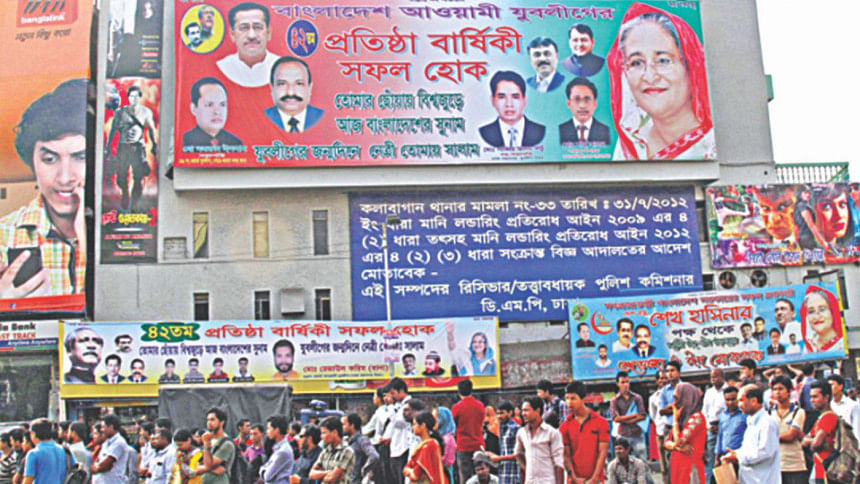Your Advocate

This week Your Advocate is Barrister Omar Khan Joy, Advocate, Supreme Court of Bangladesh. He is the head of the chambers of a renowned law firm, namely, 'Legal Counsel', which has expertise mainly in commercial law, corporate law, family law, employment and labor law, land law, banking law, constitutional law, criminal law, IPR and in conducting litigations before courts of different hierarchies.
Query
I am a resident of Dhaka. I have been facing this problem of graffiti being drawn and sticking of posters on the walls of my house. This increases during any election time, and throughout the year I have to repaint my boundary walls at regular intervals and remove posters from it. I have not contacted the authority yet since the posters are of politically influential people and I am unaware of any law regarding this problem. I want to know if there is any law in Bangladesh regarding this problem of mine, and how can I get a permanent solution for this issue?
Mustofa Kamal
Dhaka.
Response
Dear reader, thank you for your query. I understand that your walls are being spoiled with graffiti drawings and sticking of posters and you wish to know if there is any applicable law to stop such activities. The Graffiti Writing and Poster Sticking Control Act, 2012 was enacted to deal with such issue.
According to this Act, the term “walls” includes the interior and exterior wall of any residence, office, court, educational institution, business centre, industrial factory, shop or any foundation or boundary demarcation fence and tree, electrical pillar or post, road island, road divider, bridge, culvert, upper portion of the road and roof of the house. Secondly, “Graffiti writing” stands for any writing, printing, and dies, drawing or painting by any colour or lime or chemical substance against the wall or vehicle for publicity or otherwise. Finally, The term “poster” means any publicity placard, picture, advertisement and any type of banner and billboard made of paper, cloth, or by electronic means.
Under section 4 of the Act except for designated places it is illegal to draw graffiti or stick posters. Therefore, graffiti and posters cannot be put up anywhere as one desires. In fact, the local government authorities and the city corporation by administrative orders can specify the place for posters sticking and graffiti writing. However, it is also pertinent to mention that graffiti can be drawn and/or posters can be put up other than the designated location with due permission from the local authority and by payment of a fixed fee. It is understandable that the authorities cannot grant permission to do so on someone else's property.
Under the said Act, the punishment for unauthorised poster sticking or drawing of graffiti is a minimum fine of Tk. 5000 to a maximum fine of Tk. 10000 and default of such may result in simple imprisonment of 15 days. Furthermore, if any beneficiary or privilege-holder of such publication breaks any provision of this Act, such persons shall be subjected to a fine of minimum Tk. 10000 to a maximum of Tk. 50000 default of which shall result in simple imprisonment for 30 days and such privilege-holder shall also bare the cost of erasing such graffiti and/or removing such posters.
Therefore, it appears that there is sufficient law enacted to tackle the particular problem that you are facing at the moment. I hope that from the above discussion you will be encouraged to contact the relevant authorities and notify them if the problem persists.
For detailed query contact: [email protected].

 For all latest news, follow The Daily Star's Google News channel.
For all latest news, follow The Daily Star's Google News channel. 




Comments